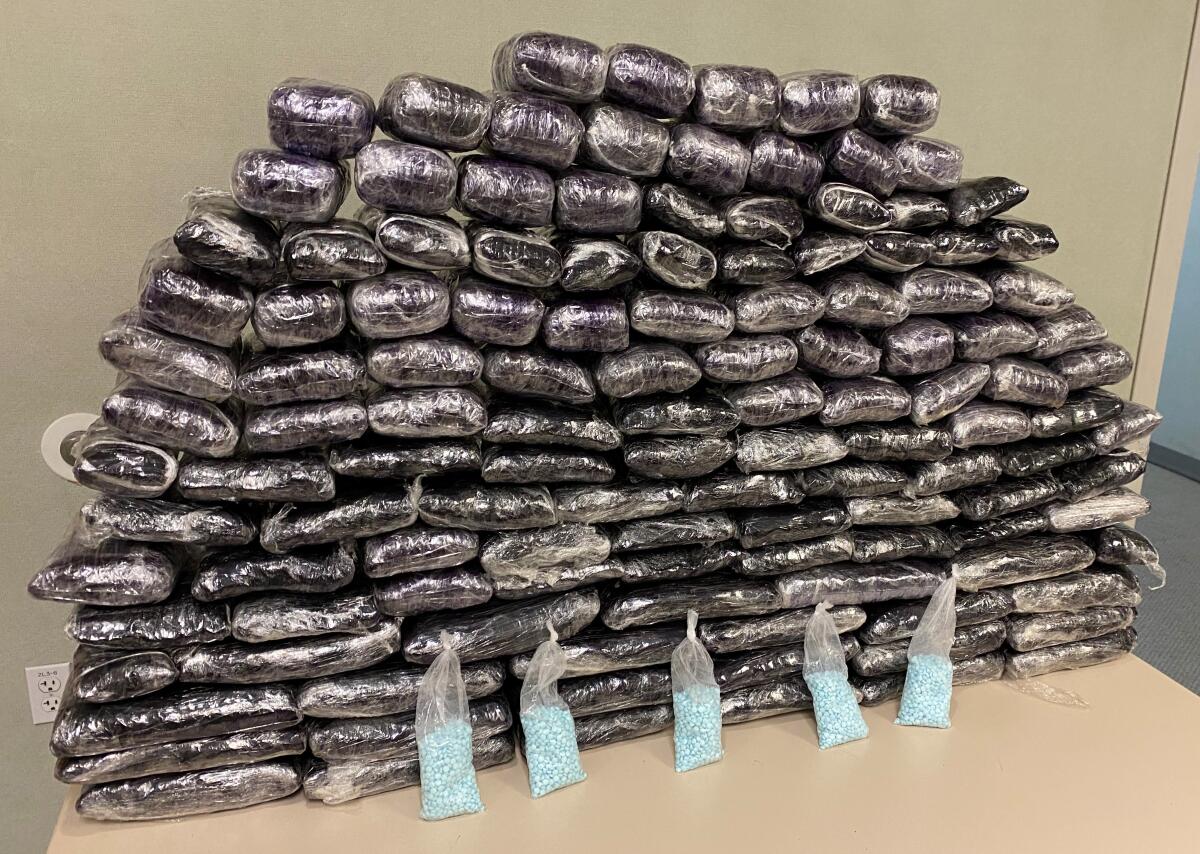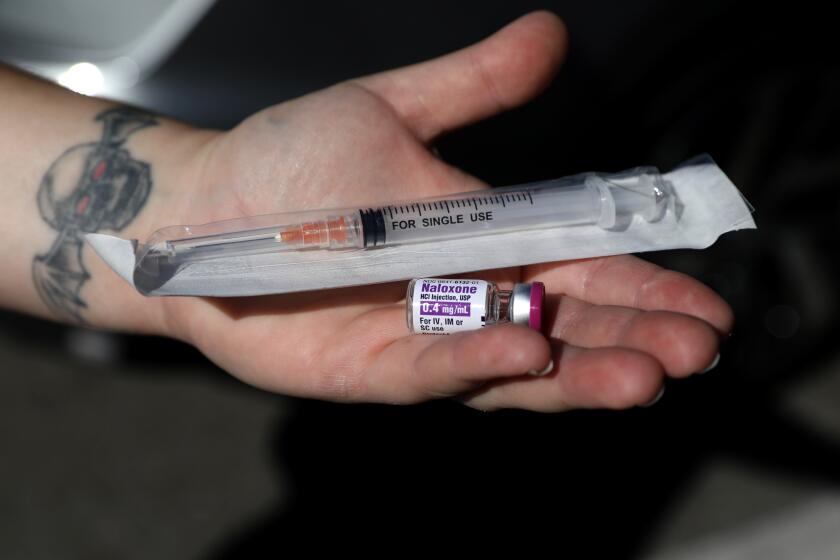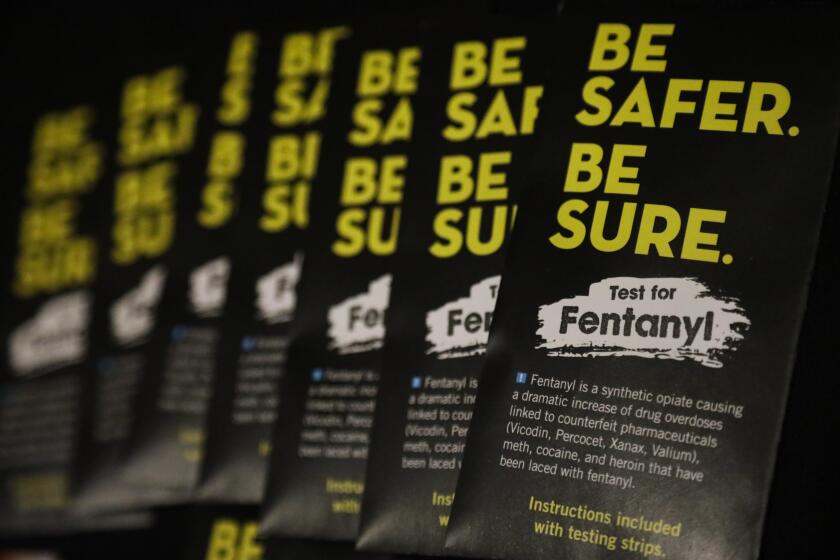1 million pills with fentanyl seized by DEA in Inglewood in record-breaking bust

- Share via
Federal agents seized about 1 million pills containing fentanyl during a raid in Inglewood this month, the largest bust of fentanyl pills in the state, the U.S. Drug Enforcement Administration announced Thursday.
The drugs were found after agents served a search warrant on July 5 at a home that investigators believe was a stash house used by a trafficking organization linked to the Sinaloa cartel.
“This massive seizure disrupted the flow of dangerous amounts of fentanyl into our streets and probably saved many lives,” Bill Bodner, the special agent in charge of the DEA’s Los Angeles office, said in a statement.
According to the DEA, the fake pills were designed to have the same look, color, shape and size of real prescription drugs. The pills were made to look like other opioid medications, such as oxycodone.
The state and L.A. County have worked hard to make Naloxone more widely available. One of the hurdles, though, has been the price of the inhalable version, Narcan.
The DEA and Hawthorne Police Department began investigating the organization in May, when agents identified stash houses and drug couriers. That investigation led to the July 5 raid and discovery of the fake pills, which DEA officials believe have a street value of $15 million to $20 million.
The Los Angeles area is considered a major hub for the shipment of drugs across the country because of its proximity to the southern border, airports and docks. Shipments of illegal drugs are often broken up in the area, then taken across the country for distribution.
Fentanyl is often mixed with other drugs (including heroin, methamphetamine and cocaine) to increase potency, but it can be deadly. Test kits can help.
More to Read
Sign up for Essential California
The most important California stories and recommendations in your inbox every morning.
You may occasionally receive promotional content from the Los Angeles Times.












